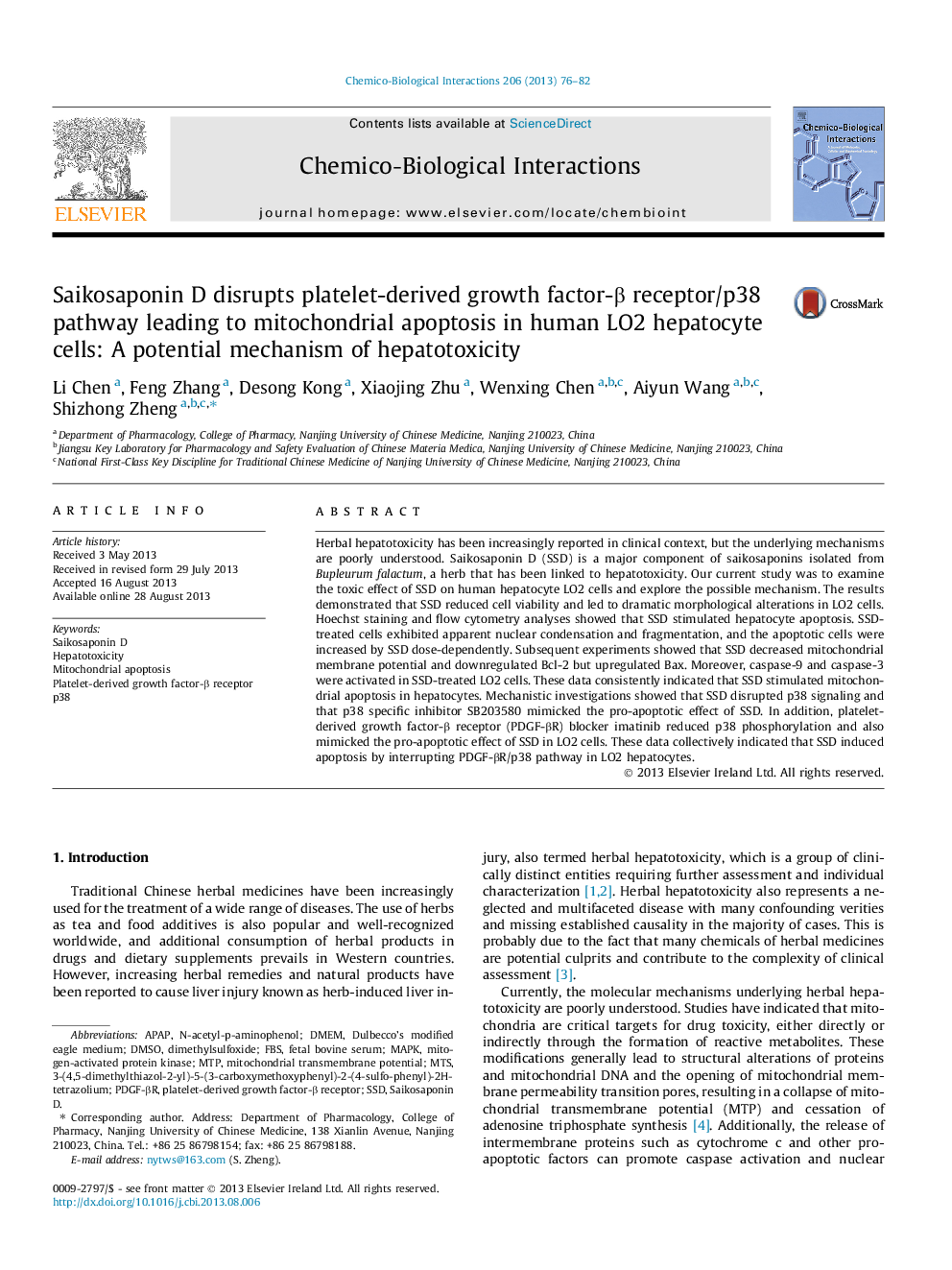| کد مقاله | کد نشریه | سال انتشار | مقاله انگلیسی | نسخه تمام متن |
|---|---|---|---|---|
| 5848179 | 1130141 | 2013 | 7 صفحه PDF | دانلود رایگان |

- SSD stimulates mitochondrial apoptosis in human hepatocyte LO2 cells.
- Disruption of PDGF-βR/p38 signaling mediates SSD-induced hepatocyte apoptosis.
- SSD-induced hepatocyte apoptosis could account for its hepatotoxicity.
Herbal hepatotoxicity has been increasingly reported in clinical context, but the underlying mechanisms are poorly understood. Saikosaponin D (SSD) is a major component of saikosaponins isolated from Bupleurum falactum, a herb that has been linked to hepatotoxicity. Our current study was to examine the toxic effect of SSD on human hepatocyte LO2 cells and explore the possible mechanism. The results demonstrated that SSD reduced cell viability and led to dramatic morphological alterations in LO2 cells. Hoechst staining and flow cytometry analyses showed that SSD stimulated hepatocyte apoptosis. SSD-treated cells exhibited apparent nuclear condensation and fragmentation, and the apoptotic cells were increased by SSD dose-dependently. Subsequent experiments showed that SSD decreased mitochondrial membrane potential and downregulated Bcl-2 but upregulated Bax. Moreover, caspase-9 and caspase-3 were activated in SSD-treated LO2 cells. These data consistently indicated that SSD stimulated mitochondrial apoptosis in hepatocytes. Mechanistic investigations showed that SSD disrupted p38 signaling and that p38 specific inhibitor SB203580 mimicked the pro-apoptotic effect of SSD. In addition, platelet-derived growth factor-β receptor (PDGF-βR) blocker imatinib reduced p38 phosphorylation and also mimicked the pro-apoptotic effect of SSD in LO2 cells. These data collectively indicated that SSD induced apoptosis by interrupting PDGF-βR/p38 pathway in LO2 hepatocytes.
Journal: Chemico-Biological Interactions - Volume 206, Issue 1, 25 October 2013, Pages 76-82